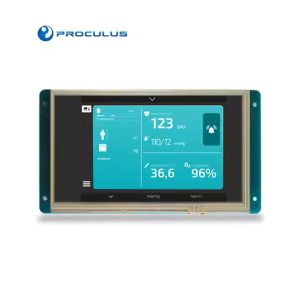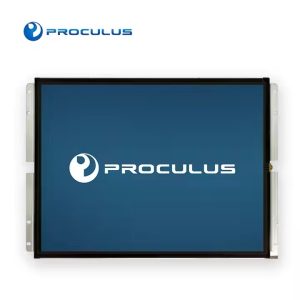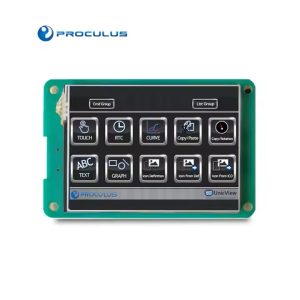What’s the Differences Between Cortex A,R,M?
Let us teach you how to make choice for your application.
ARM® Cortex® series processors are widely used in various industries. These solutions offer designers a great deal of choice to use the best-fit core for their application. The Cortex portfolio is split broadly into three main categories: • Cortex-A: application processor cores for a performance-intensive systems.
• Cortex-R: high-performance cores for real-time applications.
• Cortex-M: microcontroller cores for a wide range of embedded applications.
• Cortex-A: application processor cores for a performance-intensive systems.
• Cortex-R: high-performance cores for real-time applications.
• Cortex-M: microcontroller cores for a wide range of embedded applications.
Cortex-A
Cortex-A processors offer design flexibility by providing various peak performance points while delivering desired power efficiency. They are suitable for applications that require rich operating systems such as Android and Linux. The Cortex-A series applications start from handsets, smartphones, computers to high-end broadcasting and networking equipment, the cores behind this magic all are started with a series of processors A5, A7, A8, A9, A12, A15 and later ARM has renamed Cortex-A12 to Cortex-A17 based on the ARM v7 architecture. When used with a perfect combination these cores provide peak-performance and high power efficiency. Cortex-A5 is the basic version of all the Cortex-A processors with low power consumption and desirable performance capabilities allowing the designers to go for it without a second thought at the same time the silicon cost is also a major factor for the wide usage of this core. Cortex-A5 is also compatible with the other cores in the series such as Cortex-A9 and Cortex-A15. The Cortex-A15 and A17 are high-performance processors suitable for premium smartphones and high-level tablets. The Cortex-A17 offers an increase of more than 60% in performance compared to Cortex-A9, while also improving overall power efficiency. It can be configured with up to four cores and combined with the Cortex-A7 for an efficient big.LITTLE configuration. For those considering Cortex-A solutions, it is advised to thoroughly evaluate the performance requirements and power efficiency needs of the application.Cortex-R
The Cortex-R series of cores target high-performance real-time applications such as hard disk controllers, networking equipment, and automotive applications. Some key features of Cortex-R cores include: 1. Efficiency and reliability: Cortex-R5 extends the features offered by Cortex-R4, offering increased efficiency and reliability for dependable real-time systems. It includes features like low latency peripheral port (LLPP) for fast peripheral reads and writes. 2. Dual-core configuration: Cortex-R5 can be implemented as a “lock-step” dual-core system, with processors running independently and executing their own programs. This configuration allows for powerful and flexible systems with real-time responses. 3. High-performance: Cortex-R7 significantly extends the performance reach with clock speeds exceeding 1 GHz and a performance of 3.77 DMIPS/MHz. It includes features like out-of-order execution and improved branch prediction. 4. Complex priority-based interrupt handling: Cortex-R7 has a fully integrated generic interrupt controller (GIC) that supports complex priority-based interrupt handling.Cortex-M
The Cortex-M series of cores are specifically designed for the microcontroller (MCU) market and offer different levels of performance and features. The Cortex-M0+ is built on the ARMv6-M architecture and is suitable for applications that are cost-sensitive or transitioning from 8-bit to 32-bit systems. It has a 2-stage pipeline and offers a performance slightly lower than the Cortex-M3 and Cortex-M4. The Cortex-M0+ also includes a micro trace buffer (MTB) for better debugging capabilities. The Cortex-M3 and Cortex-M4 are very similar cores, both based on ARMv7-M architecture. They have a 3-stage pipeline, clock speeds up to 200 MHz, and efficient debug options. The significant difference is that the Cortex-M4 core includes Digital Signal Processing (DSP) capabilities. It adds saturating and SIMD instructions optimized for handling DSP algorithms, making it more suitable for applications requiring DSP functionality.Our support
Proculus as an intelligent lcm solutions manufacturer, offers RK solutions based on Arm processors. We make solutions based on A7, A9, A17, A35, A55 and so on according to customers’ requirements. These solutions serve for the following aspects: If you don’t know how to choose the most proper solution, feel free to contact us.
If you don’t know how to choose the most proper solution, feel free to contact us.
Category:
Author:
Client:
Date:
 English
English


